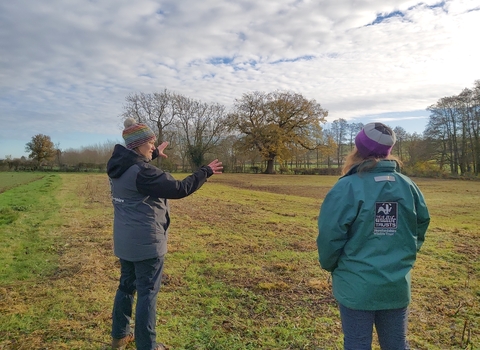The health of the river Wye is of highest priority and more so now since the status of the SSSI was downgraded. Increasingly hot summers and extended periods of drought mean that low river levels are becoming more extreme and regular which causes a number of issues, this includes low oxygen levels leading to fish deaths, increased concentration of nutrients leading to algal blooms and hotter water temperatures which put a variety of species at risk. Action, such as increased abstraction, that risks lowering these water levels further should be very carefully considered and expert hydrological advice should be sought.
Dry weather with intermittent heavy rainfall has led to low water levels in the water courses followed by periods of flooding. Dry, compacted or impervious ground means that groundwater hasn’t been replenished as the water flows over the surface and directly into the water courses leading to flooding. Intensive agricultural practices and increased urban development both increase surface water runoff and reduce the amount of water absorbed by the soils. Abstraction from depleted groundwater stores will lead to further depletion and reduce the amount of water available in the soils.
Measures can be taken in both developments and agriculture to enable greater water absorption by the soils and increase groundwater supplies. For developments these might include the use of soakaways to collect runoff from roads and paths, they allow the water to slowly be reabsorbed by the soils rather than feeding the water directly back into water courses. Materials like tarmac and concrete allow water to run directly off them and into drains where they feed back into the water courses. Using materials, like gravel, that allow water to pass through and back into the ground reduces the pressure on the drain system and replenishes groundwater supplies. In agriculture surface runoff from fields can be reduced by increasing vegetation cover and reducing the amount of bare soil that is exposed. Where soils have become compacted from overuse aeration methods can help reduce this compaction and increase the soils ability to absorb water. These measures can also help replenish important nutrients in the soils, making them healthier and more productive.
The creation of boreholes can risk additional pollutants and sediments entering groundwater supplies and ultimately watercourses, this should be carefully monitored to ensure that no impact will occur.


